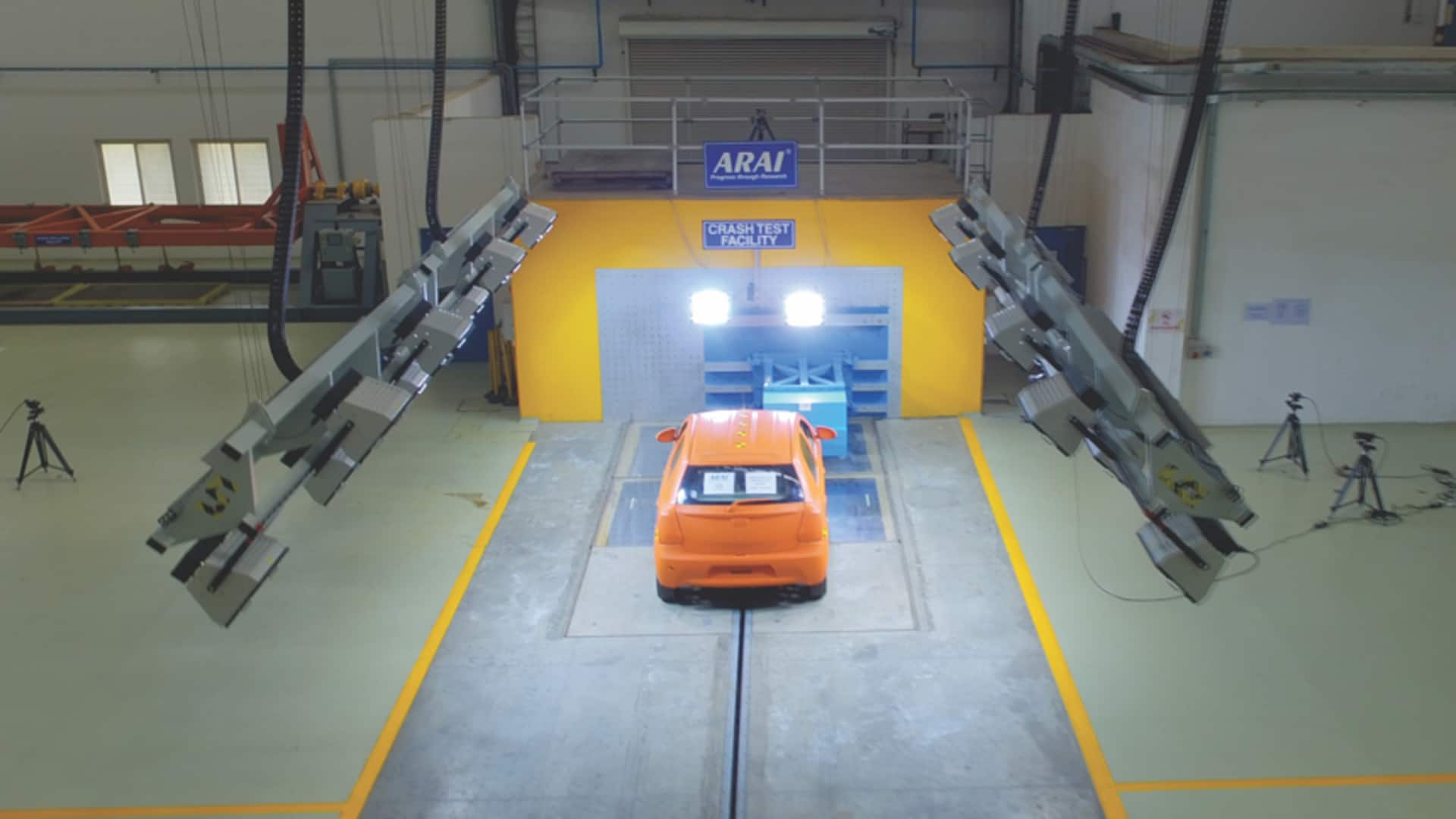
Crash testing made affordable in Bharat NCAP
What's the story
India's highly-awaited crash testing program, the Bharat NCAP has been introduced to enhance road safety and vehicle quality.
It follows a cost-effective approach, thereby lowering testing expenses and making it more accessible for carmakers on our shores.
For reference, it costs Rs. 60 lakh to test a car under Bharat NCAP, in place of the Rs. 2.5 crore required abroad.
This voluntary crash testing initiative evaluates vehicles based on their performance and provides star ratings for adult and child occupants.
Objective
Bharat NCAP aims to tackle India's road safety crisis
Bharat NCAP aims to address India's concerning road accident and fatality rates, which have a substantial economic impact on the country.
By establishing higher safety standards, the program has the potential to alleviate this crisis and make Indian roads safer for everyone.
This move by the government has prompted carmakers to focus on the safety and quality of their cars, instead of merely offering low-cost and unsafe vehicles to gain higher profits and volumes.
Acceptance
Leaders from Indian auto industry have embraced the new program
The Indian automobile industry has welcomed Bharat NCAP with open arms.
With major players such as Maruti Suzuki, Hyundai, Mahindra, Tata Motors, and Renault expressing their support, the new crash testing program will surely be a successful one.
They all view it as a positive step toward enhancing vehicle safety standards and providing consumers with a reliable rating system to inform their purchasing decisions.
Support
Global NCAP has signed MoU to support Bharat NCAP
Global safety watchdog, Global NCAP has signed a Memorandum of Understanding (MoU) with the Central Institute for Road Transport (CIRT).
With an experience of over 10 years, G-NCAP will share various SoPs related to the process of selecting and testing vehicles, along with other best practices with CIRT experts.
It aims to provide technical support to Bharat NCAP and end its 'Safer Cars for India' campaign soon.
This move represents a significant stride toward a safer future on Indian roads.